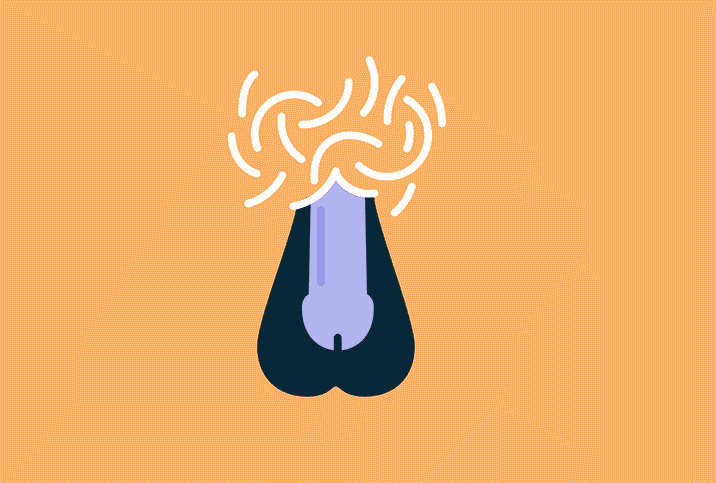Here's a Tip: Get to Know Your Glans

Fittingly deriving its name from the Latin word for acorn, the glans has been given many colorful nicknames: head, mushroom tip, bell end and peen tip are just a few of the slang terms for the head of the penis. Despite the humorous names, the glans plays a vital part in your health and sexuality as a man. Learn what it does, the common conditions associated with it and why you should become the glans' best friend.
What is the glans and what does it do?
The glans is the head of your penis, but it does more than just give your member some personality. For men without hypospadias, it's where urine, pre-ejaculate and semen leave the body. The glans plays an important role in sex and foreplay, as it's typically the most sensitive part of the penis.
The glans is hidden by the foreskin in men who are uncircumcised until they achieve an erection. In males who are circumcised, the glans is readily visible. This is purely aesthetic; whether or not it's exposed has no relation to its functions.
Conditions that can affect the glans
Like other parts of your penis, the glans can be affected by adverse conditions, so you should always keep an eye out for irritation and redness, especially if you're uncircumcised. Here are some common conditions of the glans and their symptoms:
Balanitis
As many as 10 percent of all males will suffer balanitis at some point in their lives, though it's more common in uncircumcised males. If treated quickly, it's not usually a cause for concern.
The warm, moist surface created by the foreskin creates a breeding ground for fungus and bacteria, which are the causes of balanitis. Infections can be a result of poor hygiene but not always. Symptoms include swelling of the glans, sores on the penis, itching around the infected area and a foul odor.
To combat balanitis, keep your member clean and wash it gently after you retract the foreskin. You can also keep balanitis at bay by cleaning your penis after sex, regardless of whether you're wearing a condom.
Phimosis
If you're uncircumcised, your foreskin should naturally retract during an erection and move back to its normal position when the penis is flaccid. When it doesn't, this may be cause for concern.
Phimosis affects only uncircumcised men and occurs when the foreskin is too tight and can't be retracted from the glans. Although the condition typically affects only young children, it can also occur in adults. If you suffer from phimosis, you can attempt to manually pull the foreskin back from the glans, but this may take some effort. In more severe cases, doctors may prescribe a steroidal ointment or suggest circumcision if the problem is recurrent.
Paraphimosis
Paraphimosis is the opposite of phimosis, meaning the foreskin can't be pulled over the glans. If left untreated, this is a serious condition that can cut the blood flow off from the glans and the tip of the penis. Diagnosis is as simple as a visual inspection, and symptoms may include pain and swelling of the glans and a dark red or blue mark at the tip of the penis.
The treatment of paraphimosis depends on the severity of the condition. In moderate paraphimosis, the application of ice or a tightly wrapped bandage may alleviate pain and fix the situation. If a doctor suspects that these home remedies won't suffice, they may inject an enzyme to reduce swelling, use needles to remove pus and blood or make an incision to relieve the tension.
Once the doctor completes this procedure, they must manually pull the foreskin back into place. They probably won't sugarcoat this part: It's going to hurt. But with a local anesthetic or painkillers, you shouldn't feel like it's going to fall off.
How to care for your glans
Basic hygiene for your glans isn't difficult, it just requires a bit of extra care and attention. If you're uncircumcised, pull your foreskin back and wash the glans (and the rest of your penis) gently each day with unscented soap and warm water. Be diligent and don't rush—make certain you're getting every bit washed. And for a failsafe, wash your hands before and after you urinate to avoid getting any bacteria, fungus or other stuff on your glans.
Although the glans is the butt of many jokes, it's a crucial part of your anatomy. Treat it as such. By keeping an eye on any potential conditions and keeping it as clean as a whistle, you can ensure your penis remains your best pal.
















